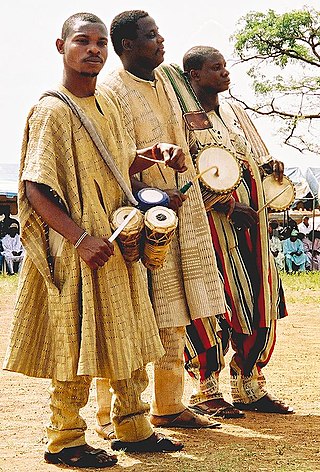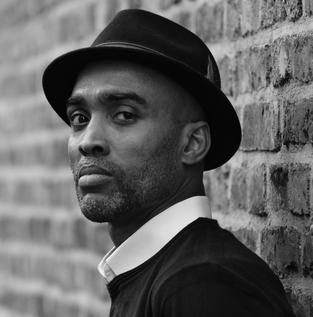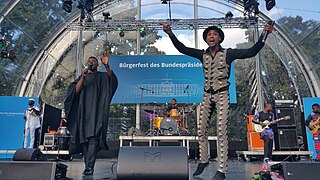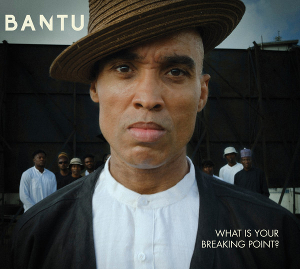
Afrobeat is a West African music genre that involves the combination of West African musical styles from mainly Nigeria such as the traditional Yoruba and Igbo music and highlife with American funk, jazz, and soul influences. With a focus on chanted vocals, complex intersecting rhythms, and percussion. The style was pioneered in the 1960s by Nigerian multi-instrumentalist and bandleader Fela Kuti, who is most known for popularizing the style both within and outside Nigeria. At the height of his popularity, he was referred to as one of Africa's most "challenging and charismatic music performers."

The music of Nigeria includes many kinds of folk and popular music. Little of the country's music history prior to European contact has been preserved, although bronze carvings dating back to the 16th and 17th centuries have been found depicting musicians and their instruments. The country's most internationally renowned genres are Indigenous, Apala, Aurrebbe music, Rara music, Were music, Ogene, Fuji, Jùjú, Afrobeat, Afrobeats, Igbo highlife, Afro-juju, Waka, Igbo rap, Gospel,Nigerian pop and Yo-pop. Styles of folk music are related to the over 250 ethnic groups in the country, each with their own techniques, instruments, and songs. The largest ethnic groups are the Igbo, Hausa and Yoruba. Traditional music from Nigeria and throughout Africa is often functional; in other words, it is performed to mark a ritual such as the wedding or funeral and not to achieve artistic goals. Although some Nigerians, especially children and the elderly, play instruments for their own amusement, solo performance is otherwise rare. Music is closely linked to agriculture, and there are restrictions on, for example, which instruments can be played during different parts of the planting season.

Adewale Ayuba, is a Nigerian singer known for singing Fuji music.
Fújì is a popular Yoruba musical genre. It arose from the improvisational wéré music, also known as ajísari, a genre of music performed to wake Muslims before dawn during the Ramadan fasting season. Alhaji Sikiru Ayinde Barrister popularized wéré music during the 1950s and 60s and conceived the term "fújì" in an unusual way. According to Barrister, "I came up with it when I saw a poster at an airport, advertising the Mount Fuji, which is the highest peak in Japan." Fújì should not be mistaken for the Yorùbá words "fuja" or "faaji," which mean leisure or enjoyment.
Jùjú is a style of Yoruba popular music, derived from traditional Yoruba percussion. The name juju from the Yoruba word "juju" or "jiju" meaning "throwing" or "something being thrown". Juju music did not derive its name from juju, which is a form of magic and the use of magic objects, common in West Africa, Haiti, Cuba and other South American nations. It evolved in the 1900s in urban clubs across the countries, and was believed to have been created by Ababababaa Babatunde King, popularly known as Tunde King. The first jùjú recordings were by King and Ojoge Daniel in the 1920s, when King pioneered it. The lead and predominant instrument of jùjú is the Iya Ilu, talking drum.

Yoruba music is the pattern/style of music practiced by the Yoruba people of Nigeria, Togo, and Benin. It is perhaps best known for its extremely advanced drumming tradition and techniques, especially using the gongon hourglass shape tension drums. Yoruba folk music became perhaps the most prominent kind of West African music in Afro-Latin and Caribbean musical styles; it left an especially important influence on the music used in Santería practice and the music of Cuba.
The agidigbo or ‘’’molo’’’ is a large traditional plucked lamellophone thumb piano used by the Yoruba people of Nigeria to play apala music.

Adegoke Odukoya, better known as Ade Bantu, is a Nigerian-German musician, producer and social activist who is the front man of the 13 piece band BANTU and the creator of the monthly concert series and music Festival Afropolitan Vibes which holds in Lagos, Nigeria. Ade Bantu is also the founder of the Afro-German musical collective Brothers Keepers. His band BANTU received the Kora Award for their album Fuji Satisfaction in 2005.
Gbedu literally means "big drum" and is a percussion instrument traditionally used in ceremonial Yoruba music in Nigeria and Benin. More recently, the word has come to be used to describe forms of Nigerian Afrobeats music.

The Sakara drum is one of the four major families of Yoruba drums of Nigeria. The other families are the Dundun/Gangan or talking drum, the Batá drum and the Gbedu drum. Each family includes drums of different sizes, with the mother drum playing the lead role and other drums playing in support. The Sakara is also made and used by the Hausa people of northern Nigeria.
Sakara music is a form of popular Nigerian music based in the traditions of Yoruba music. It mostly in the form of praise songs, that uses only traditional Yoruba instruments such as the solemn-sounding goje violin, and the small round sakara drum, which is similar to a tambourine and is beaten with a stick. Sakara music overlays the nasalized, melismatic vocals of Eastern Africa and Arabic on the traditional percussion instruments. The music is often brooding and philosophical in mood.
Abiodun Odukoya, better known as Abiodun, is a Nigerian-German singer, songwriter, producer and music arranger. Abiodun's name is of Yoruba origin and means "he who is born on a day of festivity". He is better known as the co founder of the Afro German music collective Brothers Keepers and as one of the pioneers of the German reggae, afro and soul music scene.

Bantu is a 13-piece band based in Lagos, Nigeria. Their music is a fusion of Afrofunk, Afrobeat, highlife and Yoruba music. The group features multi-instrumentalists and singers who perform as a collective.

BANTU is a self titled international debut studio album by BANTU. It was released in 2004 on Nitty Gritty Music. The album features Adé Bantu and his brother Don Abi aka Abiodun sharing lead vocal duties on all songs. The subject matter of the album centers around Pan Africanism, racism, xenophobia, love and a strong yearning for home. Most of the lyrics on BANTU are in English. A few choruses are sung in Yoruba while Pidgin English is interspersed to create a distinct Nigerian flavor. Other languages sung or rapped in by guest vocalists include Wolof, Spanish, Swahili and German. The album BANTU also features a remake of the Third World 1983 classic "Lagos Jump". The album was described by music critic Karsten Frehe as a colourful mix of Afrobeat, Pop, a little Reggae, Funk, Soul & Hip Hop

No Man Stands Alone is Bantu's fourth studio album. It is features collaborations and duets by Ade Bantu and mostly Nigerian artists The only international feature is Ghanaian musician Wanlov The Kubolor on the Afrobeat inspired track "Travel & Sea"."I'm Waiting" a duet with Nigerian Songstress Nneka was released as the official soundtrack of Andy Amadi Okoroafor's movie Relentless starring Nneka and Gideon Okeke 84 year old legendary Highlife musician Fatai Rolling Dollar is credited as a guitarist and vocalist on "Ni Bo L’anlo".

Agberos International is the 5th studio album by BANTU. The album was composed and written by all 13 members of the band. It was recorded live in Lagos, Nigeria, over six years. The title of the album Agberos International was inspired by Lagos public bus conductors known as agberos who attract customers to board their vehicles through their wild gesticulations and loud voices. The album was released on 7 July 2017 by Soledad Productions. The subject matter on Agberos International is centered around the Niger Delta crisis, oppressive Western policies and the blind African ruling class.

Fufu is the first studio album by BANTU. The album consists of collective and individual compositions by all four founding members of the group: Patrice, Amaechi Okerenkwo, Abiodun & Ade Bantu. It was released by the Nigerian music label Kennis Music. The album earned BANTU two radio hit singles in Nigeria for the songs “Nzogbu” & “Fire Inna Dancehall”

Everybody Get Agenda is the sixth studio album by Bantu, released on September 23, 2020, on Soledad Productions. Like their previous album Agberos International, this long player was composed and written by all members of the band. It was recorded in Lagos, Nigeria and mixed in Cologne, Germany. The music style is Afrofunk and Afrobeat with elements of Yoruba music, Soul, Jazz and Rap.

What Is Your Breaking Point? is the seventh studio album by Afrobeat and Afrofunk collective BANTU released on June 9, 2023, on Soledad Productions. The album features a unique fusion of Afrobeat, Afrofunk and various Yourba musical influences. It explores themes of Africa's brain drain, post colonial trauma, gender oppression and social class discrimination.












